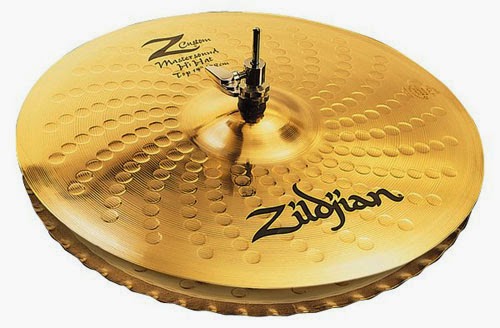So you got your shiny new drum kit delivered and you’re ready to start playing like Keith Moon? Well after the initial moment of wondering how you put this thing together, why not take the time to learn about what each part does, how it works and how best to set it up.
Your standard drum kit usually comes in 5 or 6 pieces. Each of these parts plays an essential role in learning how to play the drums, but also in finding a playing style that fits the music you are in to, as well as allowing you to play in comfort and enjoyment. Each kit should contain instructions on how to assemble the kit, so after you are ready to go, why not take some time to look at each piece and to learn what job it does.
Let’s look at a standard 6-piece drum kit and get to know it a bit more closely.
The Snare
The High-Hat Cymbals
These double cymbals are fitted to a pedal which allows you to create a number of different sounds during your drum play. Usually played in eighth patterns as well as sixteenths, this piece of equipment is the key to giving timing to both yourself as well as your other band mates. Create rolling patterns, open crashes and closed muted sounds with the high-hats’ to give colour to any basic pattern.
Zildjian are one of the most popular brands of cymbal manufacturers out there, so if you want to sound like a pro, why not choose a kit that comes with them pre-installed. You can always upgrade your existing kit with Zildjian cymbals to make sure you are sounding the best you can.
The Bass Drum
The bass drum is where the meat of your drumming comes from, as is an important rhythmic timing method for your bass player. Keeping a tight bass drum action will allow you to flow into different rolls and patterns easily, and give your sound a fuller tone is used in a back-beat style. The bass drum is nothing without the snare and vice versa.
The Ride Cymbal
The ride cymbals are used in the same style as the high-hats’ to create a rhythmic cue to the music to keep the tempo up and on time. It is usually the largest cymbal in a kit and is known to have a sustained sound that is used in both eighths and sixteenths timing patterns in many instances and genres of music.
The Toms
Toms are the supplementary sisters of the bass drum and cousins of the snare. They provide a different tone than the snare due to not having the snare wire underneath the bottom skin. They sound deeper with an almost mellow tone to them and allow the drummer to create a mix of rolls, fills and ride patterns in various different styles to complete verses and phrases during a song.
The Crash Cymbal
The crash cymbal is a very loud sounding cymbal that is used to accent drum rolls and fills to finish the end of a phrase in a song. They intensify a drum roll or a fill by providing a full-stop to a drumming pattern and allow the drummer to reset or change pattern mid-song without losing where they are. Zildjian offer a range of crash cymbals that are tailor made to your musical style.
Once you know what these different drums sound like, you will get a clue as to how to use them. You only have to listen to your favourite songs to be able to hear each of these drums being played in various different styles. Try finding a pattern that suits your playing style and finish them off with a simple fill or a roll and you will be drumming like the best of them in no time at all.







